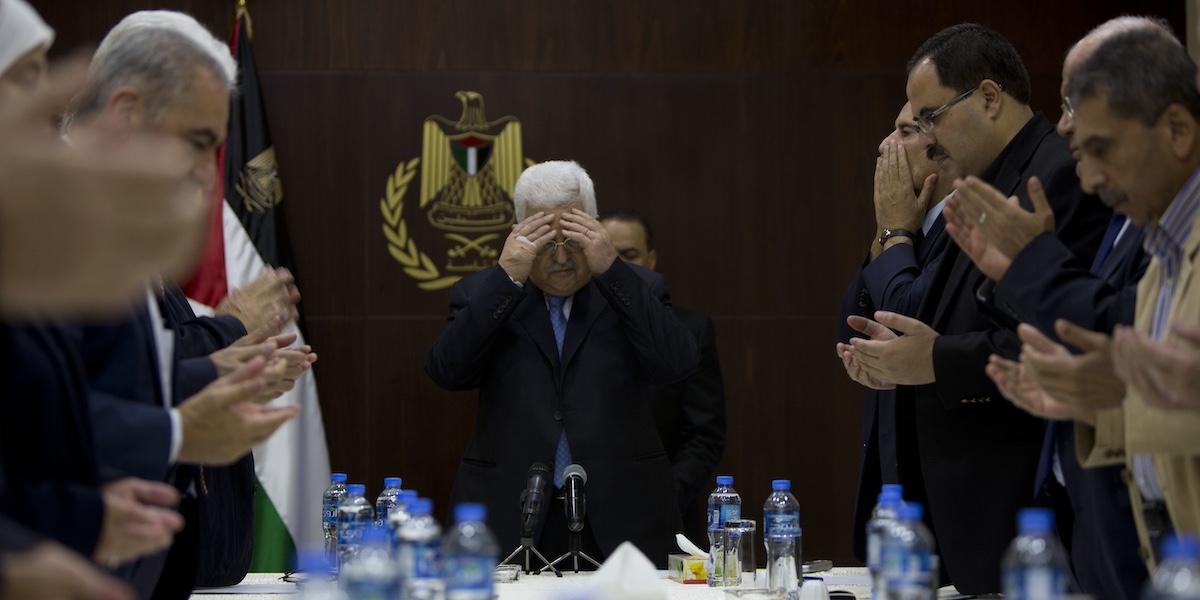Loading player
Mohammad Shtayyeh, the prime minister of the Palestinian National Authority (PNA), the parastatal entity that semi-autonomously governs the West Bank territory, resigned on Monday (Shtayyeh will however remain in office until the formation of a new government). It is news that has been quite commented on in the international press, because it could have implications that go beyond the local politics of the West Bank and also concern the Gaza Strip, which is instead governed by Hamas.
The United States and their allies, who have long been pushing for the PA to be an alternative to Hamas in the Gaza Strip once the war is over, hope in fact that the new government can be stronger than the previous one, and that it can have greater legitimacy than the one led by Shtayyeh.
It is difficult to make predictions in this regard, although several analysts have said they are skeptical that a scenario of this type could materialize: both because Israel has so far always opposed a possible Fatah government (the party that controls the PNA, which is much more moderate compared to Hamas) also in the Strip; and because there are doubts that the PA’s behavior will change significantly in the near future, given that President Mahmoud Abbas will remain in office and continue to influence the decisions and management of the Authority.
The main problem of the PA continues to be its legitimacy and credibility, which for a long time now have been undermined by various factors, in particular by poor management of public affairs and by an attitude towards Israel judged by many West Bank Palestinians to be too accommodating. Among other things, the PA was accused of not opposing with sufficient force the construction of many new illegal Israeli settlements in the West Bank (the so-called “settlements”), even though opposing it was objectively difficult, in a context in which the Israeli army de facto controls the territory. In a survey conducted in December, 88 percent of Palestinians supported Abbas’ resignation.
Hence the discussions on the need to improve the management of the ANP they go forward for some time and have intensified after the start of the Israeli invasion in the Strip. Since last October, various representatives of the United States have visited the West Bank several times and encountered Abbas precisely to convince him to reform the PA and give up part of his power. Among these were also the Secretary of State, Antony Blinken, and the National Security Advisor, Jake Sullivan.
United States Secretary of State, Antony Blinken, with the president of the Palestinian National Authority, Mahmoud Abbas (AP Photo/Mark Schiefelbein, Pool, File)
The United States they commented Shtayyeh’s resignation was welcomed, but said that in any case the composition of the next PA government will have to be decided by the Palestinians. Some officials, who remained anonymous but cited from various newspapersclaim that Abbas (who is 88) wants to replace Shtayyeh with economist Mohammad Mustafa, who would then form a caretaker government.
As mentioned, Israel has always opposed entrusting significant powers to the PA, especially in the Gaza Strip. According to the plan presented last Friday by the Israeli Prime Minister, Benjamin Netanyahu, after the end of the war Israel should maintain “security control” in the West Bank and the Gaza Strip, which should be “completely demilitarized” and governed for non-issues. military by “local officials”: it is not clear whether linked to the ANP or not.
– Read also: Netanyahu’s plan for the Gaza Strip includes “unlimited freedom” for the army
The Palestinian National Authority was created in 1994 as a consequence of the Oslo Accords, with which for the first time Israel and Palestine recognized each other as legitimate interlocutors and the foundations were laid for the creation of two independent states, a project which, however, never materialised. been achieved and today it now seems very difficult to achieve.
The PNA has always been an expression of Fatah, the main secular and moderate party on the Palestinian political scene. The last elections in the West Bank took place in 2006, and since then Abbas has always refused to call new ones.
